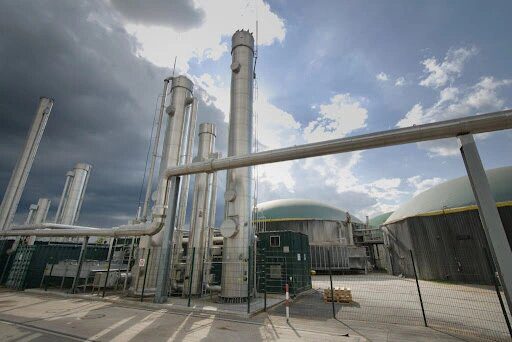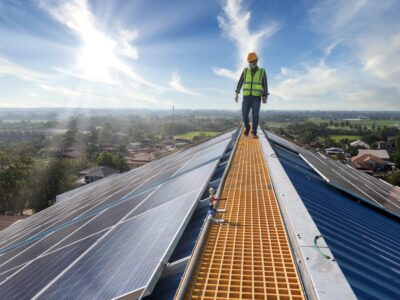Campaign Aims To Rewire Citizens’ Thoughts On Going Electric.
Expanding clean electric power in the U.S. is a major priority in the battle against our changing climate. According to Resources for the Future (RFF), a nonprofit research institute in Washington, D.C., more than 40% of electricity in the country is generated using zero-carbon fuels such as nuclear power and renewable energy.
If policymakers seek to decarbonize the transportation, building, and industrial sectors, then replacing fossil fuels with electricity might be “one of the only technologically viable options,” the RFF said in a report.
One of the keys is figuring out how to speed the transition to clean electricity among businesses and consumers.
That’s the aim of a new partnership between Rewiring America, an electrification nonprofit, and seven companies from different sectors of the economy, aiming to educate Americans about Inflation Reduction Act (IRA) rebates and tax credits to electrify their homes.

Photo Courtesy Rewiring America
The partnership’s near-term goal is to inform at least 10 million U.S. households about opportunities to save money with heat pumps and other products and technologies, using Rewiring America’s Inflation Reduction Act Calculator and similar tools. The project involves seven companies: Airbnb, Arcadia, Duquesne Light Company, Lyft, Mosaic, Propel, and Redfin.
In a separate initiative, other companies, like Mars, Procter & Gamble, and Cargill, have joined the Renewable Thermal Collaborative to increase their use of heat pumps in industrial facilities as a way to cut costs and reduce pollution.

Photo Courtesy Renewable Thermal Collaborative
Rewiring America estimates that the average U.S. household qualifies for $10,600 in IRA benefits to electrify their spaces. The mission now is to spread the word.
“One of the best ways for people to get that information is through platforms that they … engage with on a regular basis,” Ari Matusiak, Rewiring America CEO, told Canary Media in an interview.
Companies involved in the partnership have a broad consumer reach across many sectors of the economy. For example, Airbnb has already rung up more than 1 billion guest arrivals. Its mission is to help hosts on its platform adopt more sustainable home practices by equipping them with the correct information and tools.

Photo Courtesy Airbnb
Lyft, which boasts more than 20 million active riders, aims to reduce emissions by transitioning to more electric vehicles and convincing customers to leave their gas-powered cars at home.
“There are 50 million people looking for a home via Redfin each month,” said Glenn Kelman, Redfin CEO, in a press release. “Our role is to guide them toward more sustainable choices about where to live and how to renovate their homes to emit fewer greenhouse gasses.”
A good first step is to install energy-efficient heat pumps to replace traditional home heating systems that run on fuel oil, propane, electric furnaces/baseboards, and natural gas.
The IRA provides up to $14,000 to low- and middle-income households to buy heat pumps and other appliances upfront.
Rewiring America estimates that consumers who use fuel oil end up overpaying heating bills by an average of $8.44 a day compared to heat pumps. Propane users overpay by an average of $6.84 a day, electric furnaces/baseboards overpay by an average of $6.62 a day, and natural gas users overpay by an average of $1.98 a day.

Photo Courtesy Rewiring America
“For households that turn the heat on for just four months of the year (November, December, January, February), that’s 120 days multiplied by $8.44 a day more for fuel oil,” according to a Rewiring America newsletter post. “So if you live in one of these 6 million homes in the United States, you could be saving more than $1,000 each year with a heat pump.”
“But beyond the purchasing cost discounts, families get to lock in these lower energy bill savings for the life of their machines. So the accrued savings are even greater,” the post continued.





